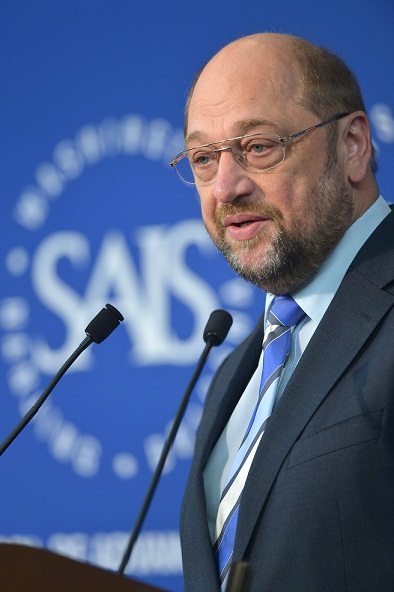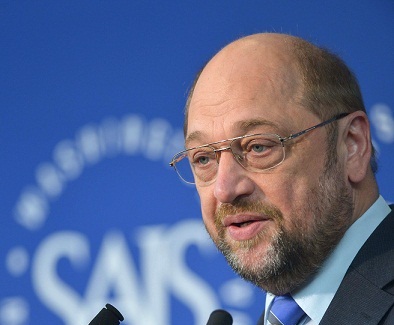
The President of the European Parliament, Martin Schulz, told a German newspaper that the European Union cannot condone the “coup” that is taking place in Egypt.
The comments were made on Saturday to the globally distributed Frankfurter Allgemeine Zeitung.
Michael Mann, the spokesman for the EU’s foreign affairs chief used a more sober tone in calling for political dialogue in Egypt and restraint in protests.
Schulz, however, did not mince words. “The European Union must make it absolutely clear that without pluralistic democracy in Egypt there can be neither economic nor political cooperation.”
The EU is a major trading partner with Egypt. Despite last year’s tumult, 2011 still saw trade of over €50 billion in goods and services. Foreign direct investment from the EU took a hit after the 25 January revolution, but last month an EU task force came to Egypt with hundreds of businesspeople in an effort to rekindle investment relations.
Following Morsy’s recent power plays, those economic ties are under threat. Schulz said, “the only thing that such a regime understands is economic pressure.”
A representative from the delegation of the European Union to Egypt said neither of these two EU representatives can “supersede” the other in dictating foreign policy. Furthermore, she stated these comments do not represent a comprehensive EU stance. They do come from high ranking EU officials and likely shed light on how the EU will progress in the future with regards to Morsy’s actions.
The representative went on to say that Egypt will be discussed tomorrow in a meeting of foreign affairs diplomats within the EU. A clearer response to events in Egypt will emerge from this meeting.
US Secretary of State Hillary Clinton spoke on Friday at a gala for the Saban Centre for Middle East Policy in front of an audience filled with high ranking American and Israeli public officials. She mostly addressed the Gaza conflict, but she also said, “Egypt’s recent declarations and the decision to hold a vote on the constitution, despite social unrest and a lack of consensus across Egypt’s political spectrum, raise concerns for the United States. To redeem the promise of their revolution, Egypt will need a constitution that protects the rights of all, creates strong institutions, and reflects an inclusive process.”
Public services at the US embassy in Cairo were closed on Sunday over security concerns. However, their press office was still open and a press officer confirmed that the Saban Centre comments are the most up to date iteration of US government opinion. He said that there are no plans for a special statement to address the events taking place in Egypt.
On Friday the UN High Commissioner for Human Rights Navi Pillay made a point by point critique of the constitutional declaration.
She said that Article I, which calls for retrials of former officials, violated the International Covenant on Civil and Political Rights (ICCPR), which states that no one should be retried for something he/she has already been convicted or acquitted of.
In regards to Article II, which removes judicial review from presidential decisions, Pillay said it simply, “contravenes the fundamental notion of the rule of law.”
Finally she said that Article V, which protects the Shura Council and Constituent Assembly from dissolution, “is incompatible with the principle of the independence of the judiciary.”



